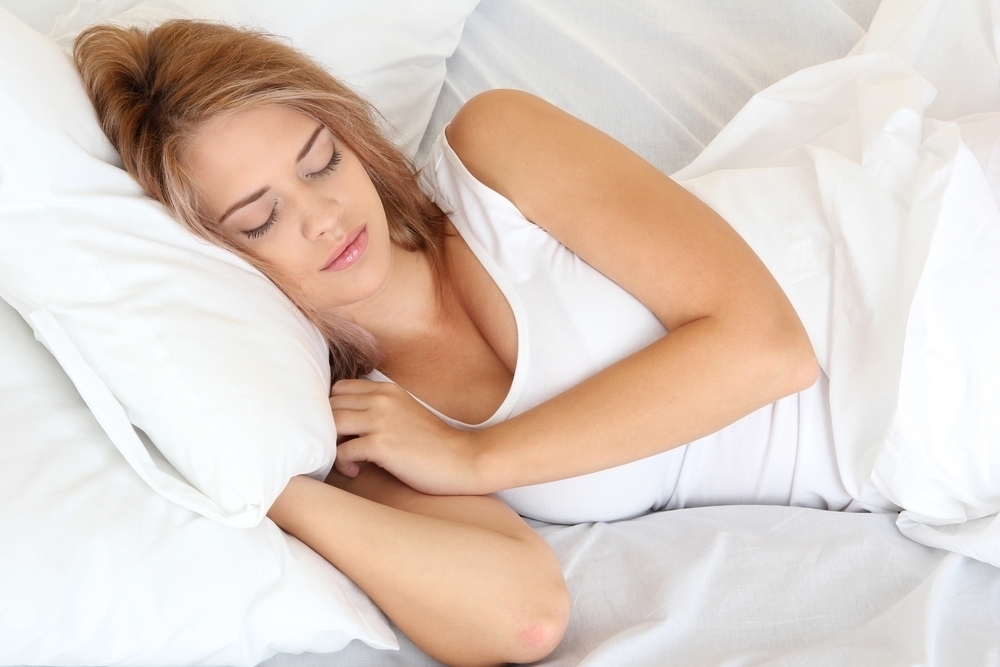In the short term, stress isn’t such a big deal, and can actually help when it comes to meeting goals and challenges, urging you to act in a more efficient way.
However, chronic stress can really cause some problems…
This is when you experience stress over a longer period of time, whether this may be weeks or months. This can really damage your health in several different ways, including:
- Lowering the function of your immune system
- Insomnia
- Headaches and irritability
- Flare-ups in autoimmune diseases
- High blood pressure
- Obesity
- Depression
- Increased cardiovascular risks
With 70% of Americans claiming to feel stressed on a daily basis, learning how to tackle and deal with stress could really make a huge difference to the general health of many people.
Want to know how to go about reducing your stress levels?
Here are a few of the best ways…
Do Some Exercise
It has been proven time and time again that those who exercise on a regular basis are likely to experience less stress and anxiety than people who do not.
Why is this?
For a few different reasons, such as:
- Lowered stress hormones – exercise lowers the levels of cortisol in the body, while triggering the release of endorphins, which are chemicals that help you to feel happy
- Improves sleep – this then helps to reduce stress
- Improves self-esteem – this can really help with anxiety
Don’t have time for a long workout?
There are many ways in which you can quickly squeeze some exercise into just ten minutes of your day, although you should then do this twice a day for best results.
Try doing some squats or standing push-ups while cooking meals in the kitchen, or spend five to ten minutes a day climbing stairs.
If you drive quite often, try parking further away than where you would usually park, so that you have to walk for five to ten minutes.
Even while you are sat down watching TV, you can still be exercising…
Jog on the spot during commercial breaks, or use small weights to do some leg exercises while you are sitting.
Deep Breathing Exercises
Deep breathing exercises are actually one of the most effective ways to instantly lower your stress levels.
When you breathe in a deep and relaxed way, even if you are forcing yourself to do this, it sends a signal to your brain to calm down. Your brain then sends this same signal to all of the different parts of your body, and, before you know it, you will feel so much less stressed and more relaxed.
Want to give this a try right now?
All you need to do is:
- Place your tongue behind your upper front teeth
- Breathe in through your nose quietly, for a count of four
- Hold this breath in for a count of seven
- Exhale completely, forcing your mouth to make a whoosh sound while doing so, for a count of eight
You should then repeat these steps four more times.
Spend Quality Time With an Animal
Did you know that science has proven that spending quality time with an animal can decrease stress in a few different ways?
Some may find this hard to believe, but it is true.
Just physically being around an animal, even if you are just watching a fish in an aquarium, decreases your blood pressure. Petting them will magnify this effect.

Animals can also help the way your body responds to stressful situations in the first place, reducing the amount of stress that you actually experience.
Take a Natural Supplement
There are some supplements that can really help to keep stress levels low.
These include:
- St. John’s Wort – lifts the mood and helps you to look at situations in a more positive light
- Rhodiola Rosea – shown to reduce stress and lift the mood, which is why it has long since been used by athletes in Russia
- Magnesium – magnesium deficiencies are extremely common, even though magnesium promotes relaxation while regulating the way in which the body responds to stressful situations
- Valerian Root – a herb that is commonly used to treat stress, anxiety and insomnia, and has been proven to help reduce blood pressure and heart rate
Since supplements are not regulated by the FDA, you do need to ensure that you purchase any supplements from a reliable source, and only use high quality products.
Aromatherapy
Aromatherapy has been used since ancient times as a stress reliever, and can really be quite effective.
Not quite sure what aromatherapy is exactly?
It makes use of aromatic plant oils, such as essential oils, as well as other aromatic plant compounds to boost both physical and psychological well-being.
Plants can be extremely powerful, and many people respond well to scents, making aromatherapy worth a try.
Want to give it a go?
The easiest way to get started is by using essential oils. The best oils for stress relief are:
- Lavender – when this is rubbed on the skin, it enters the bloodstream in just five minutes, reducing stress and agitation and boosting mental concentration
- Cedarwood – has a calming effect on the mind, while triggering the brain to release serotonin, which helps to stabilize the mood
- Lime – refreshing and uplifting, lime can really help with stress and anxiety caused by grief or sadness
- Rose – promotes tranquillity in the body while boosting self-esteem and helping with depression
- Orange – a study carried out in Japan showed that patients taking orange oil for stress and depression were able to reduce their intake of antidepressant medications
- Sandalwood – has a therapeutic effect on the brain, helping to balance your emotions
Wondering how to actually use these oils?
Some can be applied directly to the skin and then inhaled, although others will need to be mixed with a carrier oil, so make sure to thoroughly research the oils you choose to use.
Alternatively, place the oils in a diffuser, or sprinkle a few drops in a bath or shower.
Drink Some Tea
There is quite a bit of research out there that shows just how effective drinking tea can be when it comes to relieving stress.
Different studies prove different things, from the way in which drinking black tea can lower the levels of the stress hormone in their body to those who drink tea being able to de-stress much quicker than those who do not.
Just about all types of tea will have this effect, but you do need to be drinking it on a regular basis in order to experience these results.
Chew Some Gum
Don’t like tea?
Try chewing some gum instead.
This is actually something that has been done for centuries, with even the Ancient Mayans and Greeks chewing on tree sap. This practice was introduced to settlers, after which it spread all over the world, resulting in the modern day chewing gum we know today.
Wondering how chewing gum can help with stress?
Research suggests that chewing gum is able to reduce the levels of cortisol in the body, leaving you feeling less stressed. It also helps to wake your brain up, keeping you feeling more alert and perceptive, meaning that you will be much better equipped to deal with stressors that come your way.
If you find that this helps you…
You need to make sure that you do not rely on this stress-relieving method completely.
Why?
Because people who chew gum for stress tend to bite down harder on the gum each time they chew, and chew much more aggressively. This can then lead to jaw problems, which can get quite serious.
Write It Down
The next time you are feeling stressed, try writing about it.
Keeping a journal is actually quite a meditative practice, and can help to reduce stress and its symptoms.

Not sure what to write about?
Write about the stressors you are currently experiencing, noting everything from what triggered the stressful situation to who you were with and how you feel, both physically and emotionally.
By doing this on a regular basis, you will be able to identify new patterns in your stressors, and may even be able to find a way to tackle these directly.
Give Someone a Hug
This may sound too easy to be effective, but giving somebody a hug can really help to relieve stress.
How?
Because hugging triggers your body to release oxytocin, a hormone that helps to promote relaxation in the mind, while boosting your mood and making you feel so much more positive about stressful situations.
Try to hug your loved ones multiple times a day to really take advantage of this.
Laugh
Laughing can be a fantastic way to relieve stress.
You are probably thinking…
“I don’t feel like laughing when I’m feeling stressed!”
Even forcing yourself to laugh can make a huge difference.
How?
In a few different ways, such as:
- By directly reducing cortisol levels
- By bringing more oxygen into your body and into all of your organs
- By relaxing your muscles to emphasize tension-relief
Give Yoga a Try
A study carried out on people experiencing chronic stress discovered that yoga was able to help relieve stress in 85% of subjects.
Yoga not only relaxes the body, but it relaxes the mind too, helping it to slow down.
It also encourages effective breathing, which, as mentioned above in the section on breathing exercises, can be so effective in reducing stress and its symptoms.
Already a fan of yoga?
Give some of these poses a try for the best stress-relieving effects:
-
- Wide-legged forward bend
- Low lunge pose
- Standing forward bend
- Garland pose
- Legs up the wall
- Bound angle pose
Listen to Calming Music
It has long since been known that music can have such a relaxing effect on the body, and science has now proved this.
Listening to music can really help to promote relaxation within the body, not only lowering your heart rate and blood pressure, but also the amount of cortisol in your body.

Wondering what you should be listening to for maximum stress-relieving benefits?
Any type of music that you enjoy can help, but, for best results, slow-paced and instrumental music is ideal. Give classical, Native American and Celtic music a try, but make sure you pick something that you actually enjoy the sound of.
Eat Stress-Busting Foods
You are likely already aware of how the foods that you eat have a direct impact on your body, and this applies to the stress that you are feeling too.
There are many ways in which certain foods can help to relieve stress, such as:
- Complex carbs – foods such as whole grain bread and oatmeal encourage the brain to produce more serotonin, giving your body a steady supply of this feel-good chemical
- Fruits high in vitamin C – fruits such as oranges, lemons and strawberries help to reduce cortisol levels in the body while strengthening the immune system, all thanks to their vitamin C content
- Leafy greens – packed with magnesium, leafy greens can help to reduce stress-related symptoms
- Avocados – these are high in potassium, with half an avocado containing more potassium than a whole medium-sized banana. Potassium can really help to lower blood pressure, but be sure not to overdo it with the avocados, as they are also quite high in calories
Stress can really have such a negative effect on your life, which is why it is important to tackle this head on and keep your stress levels under control. The next time you find yourself feeling stressed, give a few of these stress-relieving tips a try to see what works best for you.










